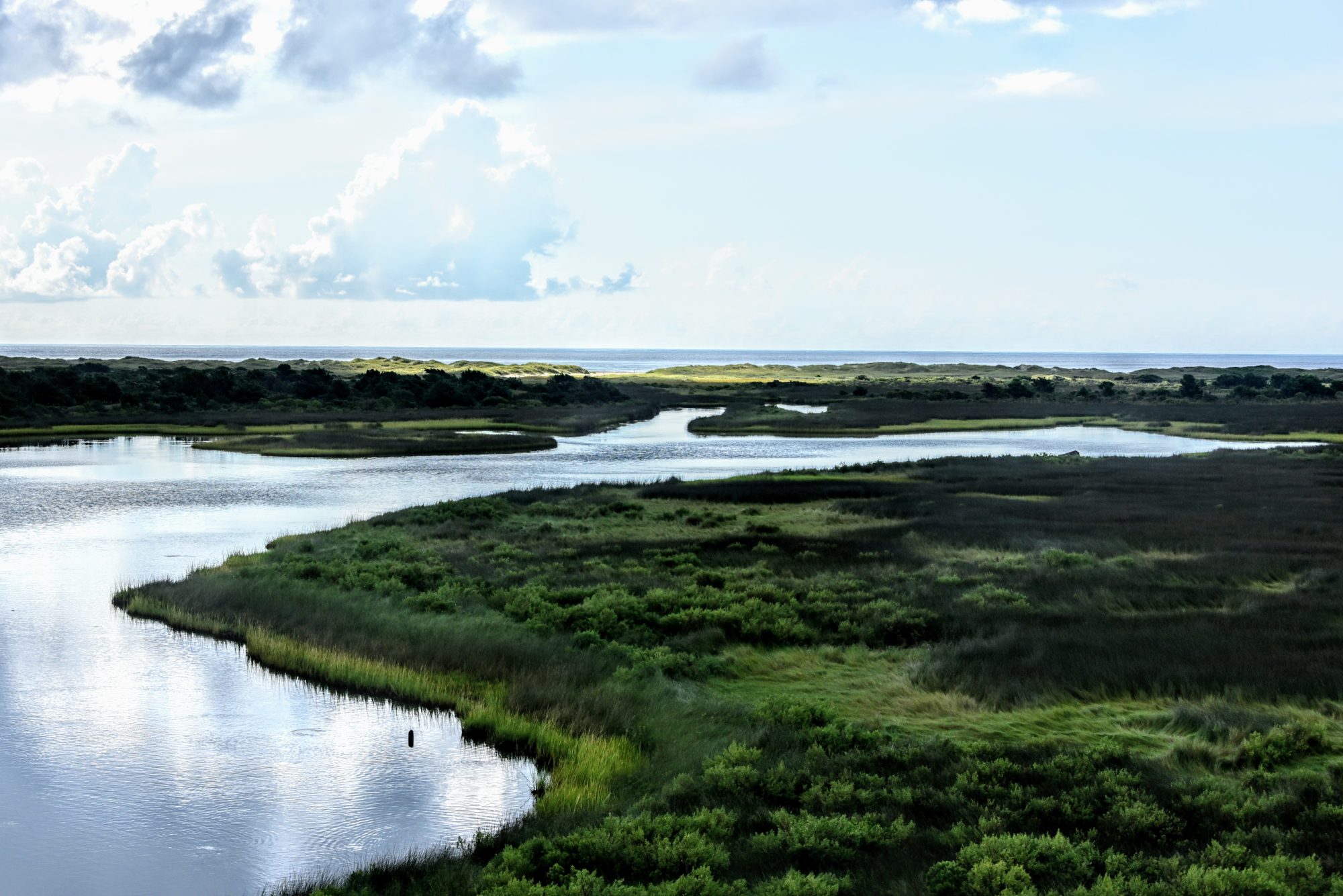Intense rainstorms cause flooding and water quality degradation as the runoff funnels pollutants to our coastal waters. The impacts are magnified by the altered landscape that channels rain instead of absorbing it. Reducing the volume of stormwater runoff is key to minimizing flooding and restoring coastal waters.
Clean coastal water is the foundation of our coastal economy and ecosystems and we depend on it for work and recreation. That’s why water quality will always be a priority for the Coastal Federation.
of wetlands restored
of gallons of stormwater runoff reduced
Stormwater Reduction Strategies
Nature-based stormwater strategies improve water quality and reduce flooding, resulting in cleaner & more productive coastal waters.
Intense rainstorms cause flooding and water quality degradation as the runoff funnels pollutants to our coastal waters. Impacts are magnified by the altered landscape that channels rain instead of absorbing it.
The Coastal Federation partners with numerous stakeholders to advance the use of nature-based stormwater strategies including strategic land acquisition and conservation easements, wetland restoration, urban stormwater retrofits, and other best management practices to reduce nutrient and bacteria loadings into coastal waterways and reduce flooding.
Showcasing these projects helps advance nature-based strategies as standard practice and provides valuable opportunities for developers, design professionals, contractors, elected and appointed officials, farmers, and landowners to better understand, utilize, and promote nature-based strategies.
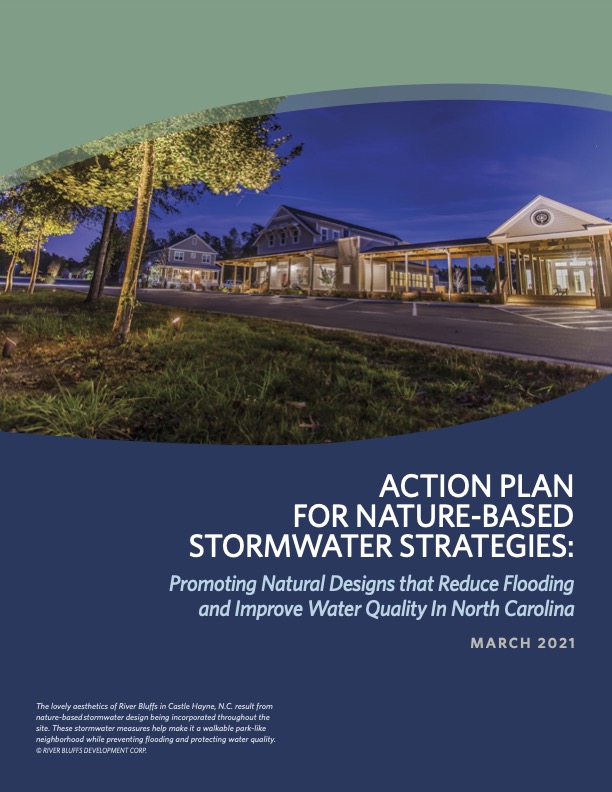
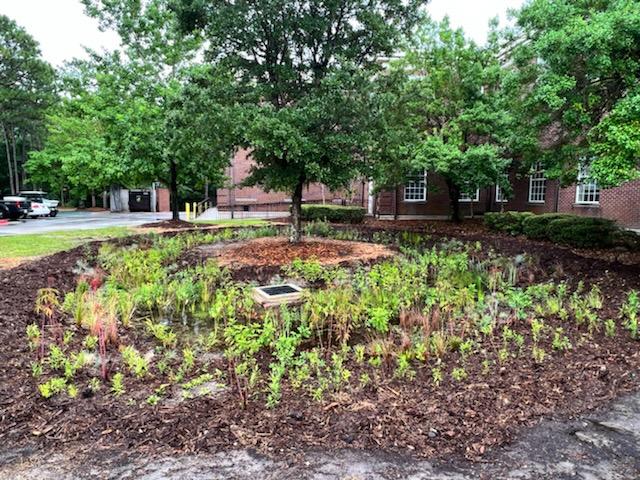
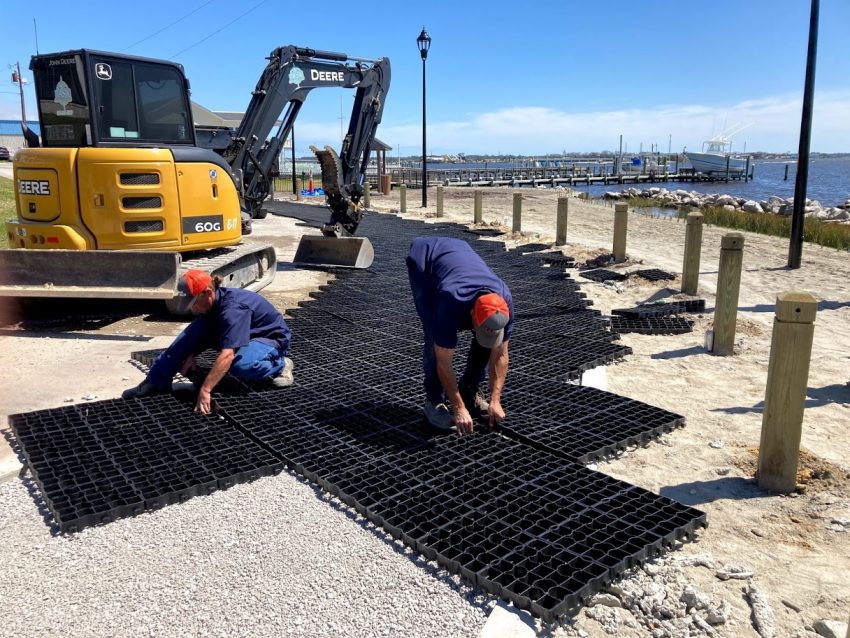
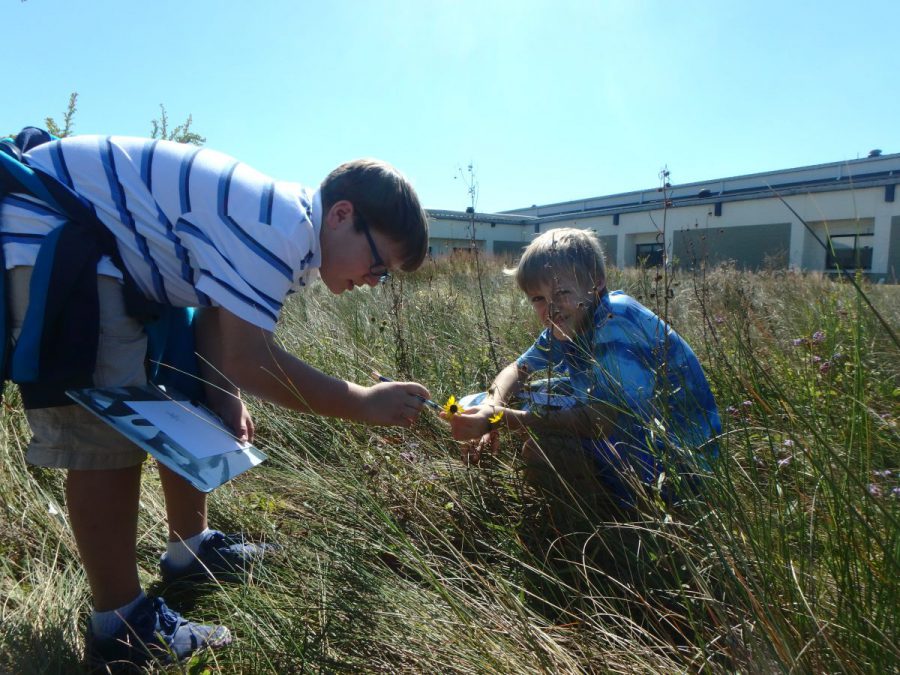
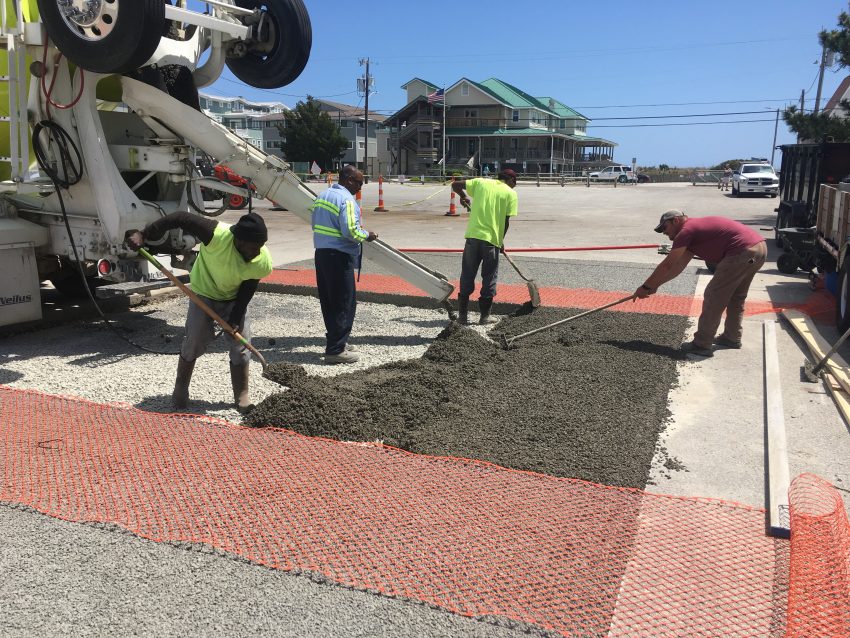
Wetlands Restoration
Wetlands Restoration is one of the strategies like urban retrofits, land acquisition and wetland restoration, that are all nature-based stormwater strategies.
Wetlands tie together land and water and are some of the most productive ecosystems in the world.
The United States has lost over half of the wetlands in the lower 48 states, and the losses continue at an estimate of over 60,000 acres per year.
However, North Carolina is at a crucial point: unlike some areas like the Chesapeake Bay or Louisiana, we still have a fair amount of coastal wetlands left and our water quality is still relatively healthy. This is important, because it is FAR less costly to protect something than to restore it.
Wetlands have many important functions that benefit people and wildlife:
- Provide habitat for a wide variety of wildlife and plants
- Filter, clean and store water
- Act as sponges to collect and hold flood waters
- Absorb wind and tidal forces during storms, protecting the land behind them
- Provide places of beauty for fishing, kayaking and exploring
- Control erosion
Watershed Restoration Progress
The Federation has prioritized the restoration of the Stump Sound and Newport River watersheds and is actively finalizing formal plans to serve as the foundation for replicating and restoring their natural hydrology. Make these plans top priority
Featured Projects
Explore Watershed Restoration Plans
Smart Yards
This guide includes simple Do-It-Yourself (DIY) Smart Yard projects to reduce stormwater and improve the health of our coastal waters.
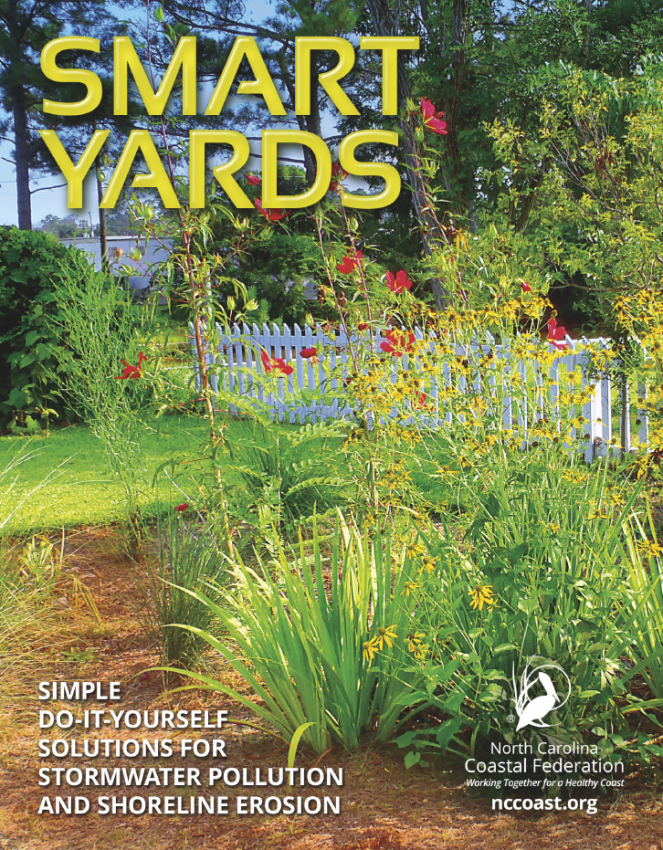
Water Quality Resources
Protect Clean Water
You can protect and restore water for fishing, swimming and working.

